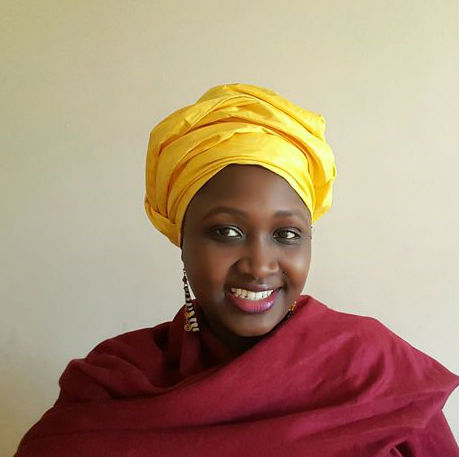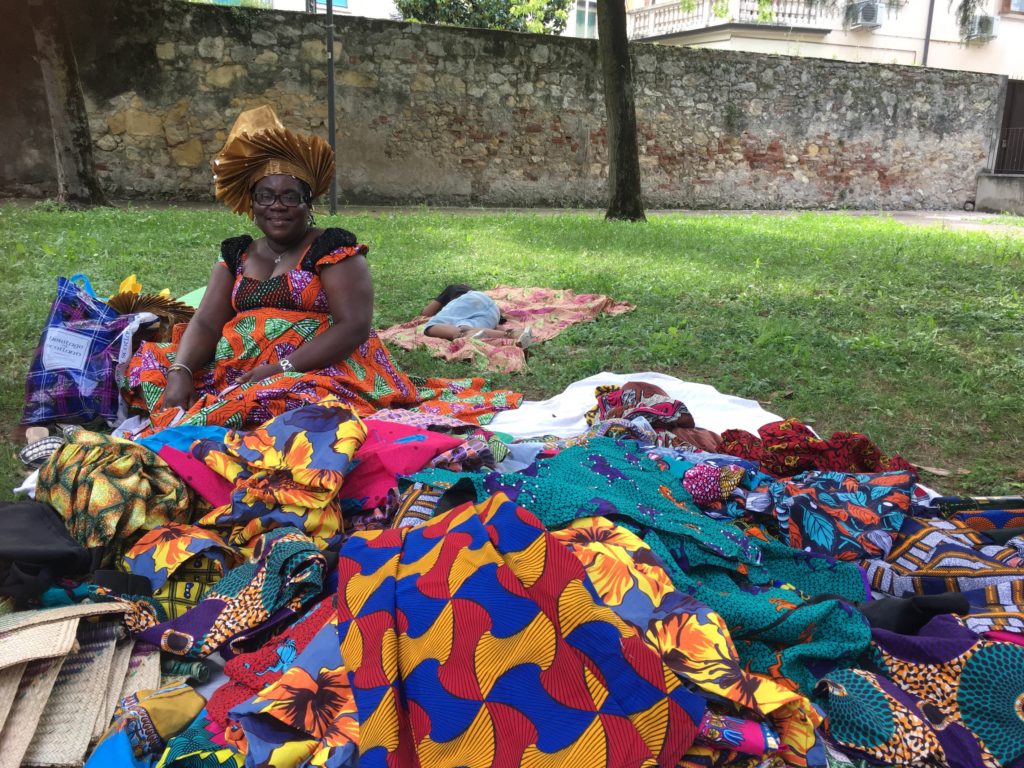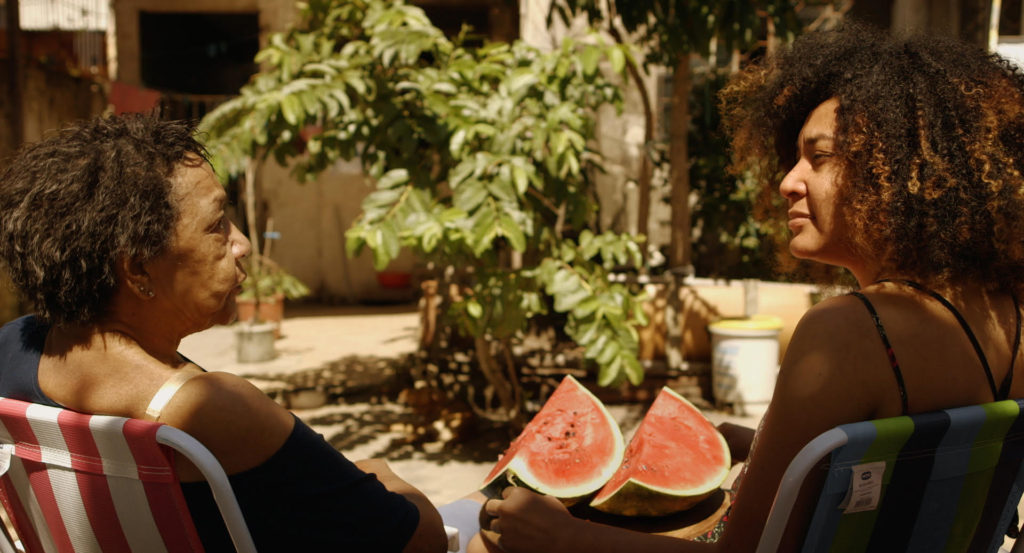As debates about separating art from the artist persist, South Africa’s ongoing crisis of gender-based violence raises pressing questions: should artists like Chris Brown, with a history of violence against women, be allowed to perform without scrutiny?
Written by Estelle Uba
South Africa is globally recognised for its dark history as an apartheid state. At the peak of the anti-apartheid movement, citizens worldwide protested against the racial injustices they saw in newspapers and on TV screens, prompting international governments to impose sanctions on the country.
Fast forward to 2024, what isn’t being publicised globally is the epidemic of gender-based violence and femicide that torments women across South Africa, a crisis which President Cyril Ramaphosa described as the country’s ‘second pandemic’ in 2020.
The country’s femicide rate is five times higher than the global average, with nine women on average being murdered every day in 2022. It also ranks among the top five countries with the highest incidence of rape.
The tragic stories of 17-year-old Anene Booysen, who was brutally gang-raped and disembowelled, 28-year-old Tshegofatso Pule, who was shot and hung from a tree at eight months pregnant, and many more victims are etched into the memory of South Africans.
Despite endless campaigning from women’s rights groups and activists, calling for further governmental and cultural intervention to help keep women safe from sexual assault, domestic abuse and femicide, the numbers continue to remain disturbingly high.
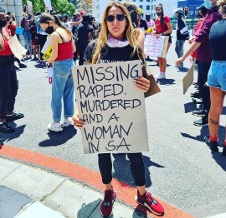
Recently, Women For Change, a nonprofit organisation that advocates for more protection of women and children from violence, was thrust into the global spotlight after launching a petition titled ‘Stop Chris Brown from Performing in South Africa: No Stage for Abusers!’.
The petition, which has almost reached its goal of 50,000 signatures, calls for the concert organiser, promoters and sponsors to cancel Chris Brown’s performance, which is scheduled to take place in Johannesburg on 14 December, and demands that Home Affairs revoke his VISA to prevent him from performing in South Africa.
Brown, who was convicted of physically assaulting his then-girlfriend Rihanna in 2009, has since had a stream of encounters with the criminal justice system, including having a restraining order filed against him by his ex-girlfriend Karreuche Tran, among several other allegations of assault.
Sabrina Walter, founder and executive director of Women For Change, says: “This petition goes beyond a single artist; it’s about standing up for the hundreds of thousands of women in South Africa who are often silenced and denied justice. In a country plagued by some of the world’s highest rates of GBV and femicide, allowing a convicted abuser to perform normalises a culture of violence.”
Since launching the petition, Women For Change has been subjected to a barrage of online hate by supporters of Chris Brown. Sabrina Walter says that the organisation has “faced a lot of criticism, hate, violent online attacks, and even death threats”, all of which intensified after Chris Brown cheekily commented “Can’t wait to come” under their Instagram post announcing the petition. She adds: “These threats reveal a troubling culture that often seeks to silence those advocating for change.”
The concert falling on 14 December also seems untimely, as it is set to take place just days after the UN’s UNiTE Campaign, an initiative of 16 Days of Activism to combat gender-based violence, lasting from 25 November to 10 December. The timing of the performance, Walter says, “is deeply concerning” and “underscores a systemic failure” in the nation’s response to gender-based violence.
‘Toxic masculinity and a sense of entitlement to women’s bodies’
Amid the online debate about whether people should be able to separate Chris Brown’s past actions from his artistry and absolve him of his violent history, what remains glaring is that many of Women For Change’s critics have lost sight of the valuable message behind the petition. Chris Brown is just one of many men who have exercised violence against women and just happens to be one of the most famous people the organisation has publicly condemned. He is not the only one, and sadly, he will not be the last.
Globally, more women and girls were killed in 2022 than any other year in the previous two decades, despite the fall in overall homicide numbers, according to research commissioned by the UNODC and UN Women. Notably, 12% of male homicides were perpetrated in the home, while 55% (48,800) of all female homicides that year were committed by family members or intimate partners, revealing that for many women and girls, the home is far from a safe haven.
Amanda Gouws, gender politics researcher and professor of Political Science at Stellenbosch University in South Africa, attributes the country’s high incidence of gender-based violence to its history of violence and inequality during the apartheid, along with factors such as sexist attitudes, poverty and social exclusion.

She says: “There is a discourse in South Africa that women got too many rights during the [post-apartheid] transition, and there are men who are very angry at women for having certain rights. It’s also a matter of the disappointment of democracy. People thought their lives would improve, but it didn’t. We have an unemployment rate of nearly 42%. Men get frustrated, and they can’t take those frustrations out on the ruling party, so they take it out on the women around them.”
She adds: “It also goes back to the stereotypical role division that women are homemakers, while men are the breadwinners. Stepping outside those boundaries seems to really anger men. They feel that they can actually coerce women into sex, and if women don’t want to have sex, they very often get killed. There’s something about this sense of entitlement to women’s bodies, toxic masculinity and the rejection of gender equality that stems from the idea that a woman has to know ‘her place’.”
The government needs to ‘increase funding, ensure accountability, and address corruption in the criminal justice system’
There has been some attempt by the South African government to address the crisis of gender-based violence in the country, namely, the launch of the National Strategic Plan on Gender-based Violence & Femicide in 2020, which came after thousands of women marched to union buildings across major cities during the #TotalShutdown movement in 2018. However, Professor Gouws says that a lack of funding and inadequate rollout limits the efficacy of government intervention and fails to prevent violent incidents before they occur.
Walter also adds that “a lack of accountability and widespread corruption within the police and justice systems”, which makes it difficult for survivors to get justice, saying: “We need a strong effort to increase funding, ensure accountability, and address corruption in the systems that are supposed to protect us. Without these crucial changes, many more sisters will die at the hands of men.”
If you or someone you know is in immediate danger or in need of urgent protection, call the police on 999.
For more info on where to find help, click here.
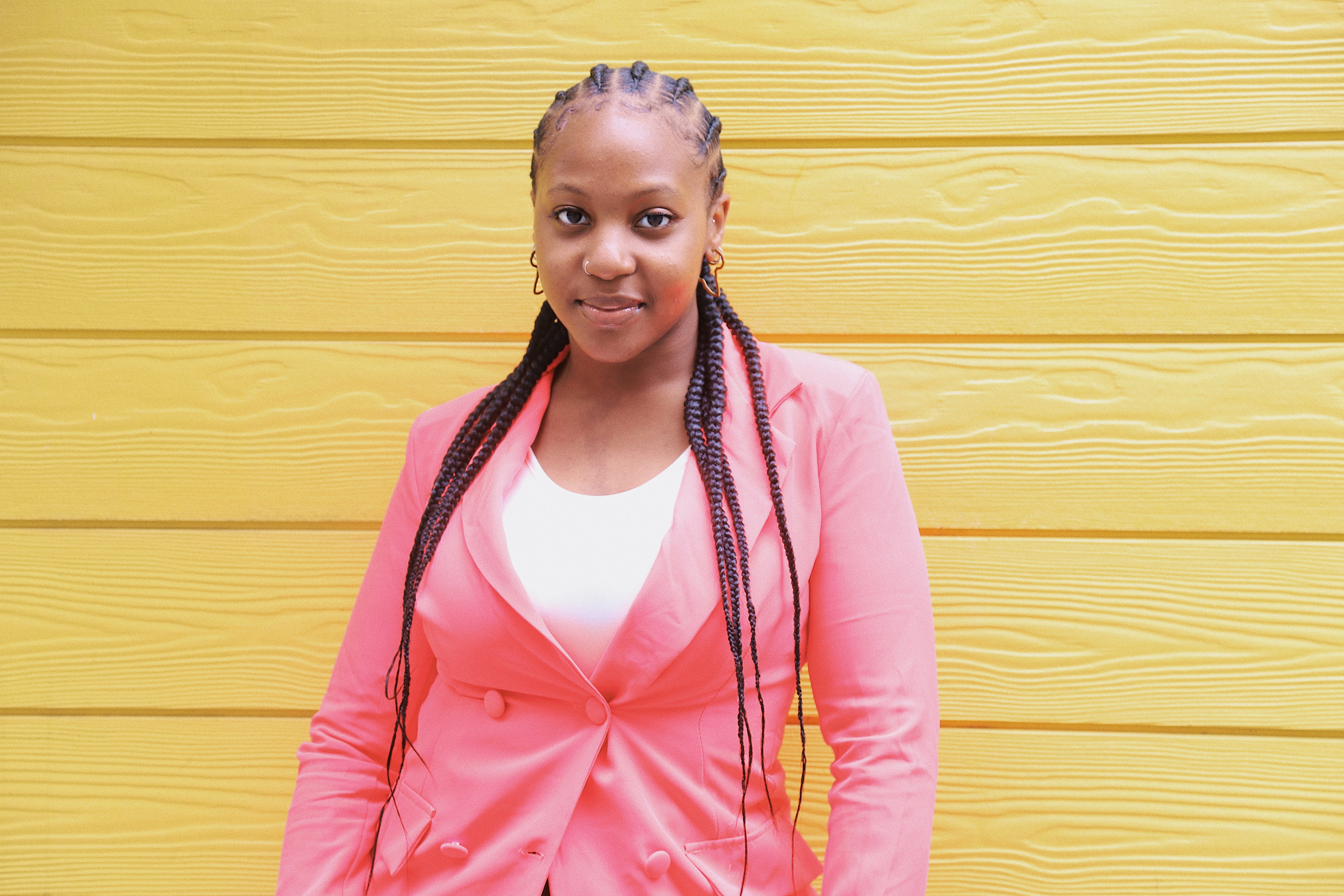
Estelle Uba is an award-winning multimedia journalist, presenter, producer and content creator whose work covers business, society and culture. She has written for The Guardian, Pioneers Post, The Republic Journal and several other publications and has produced video content for the international press agency AFP. She also volunteers as a content creator and event host at the Young Africa Centre and a writer for the Pan-African magazine Irokoos.

